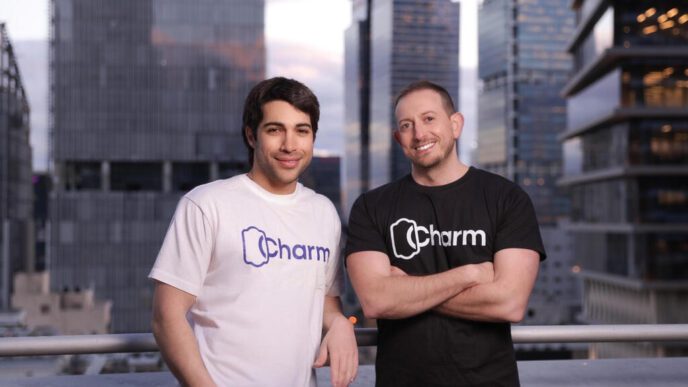The gender funding gap in Germany’s startup ecosystem is widening at an alarming rate. Recent data from the EY Startup Barometer 2025 reveals that female-founded startups attracted only €43 million in 2024 — a staggering 58% drop from €102 million in 2023. In contrast, all-male teams raked in €6.2 billion, marking a 25% jump from the previous year.
This drastic imbalance means women-led startups now represent just 1% of the total funding volume, down from 2%, even though they make up 4% of all funded companies. As male founders thrive, female entrepreneurs continue to battle for their place in Germany’s startup landscape.
The Harsh Reality: Female Founders Face Steep Funding Barriers
The latest figures paint a sobering picture. Out of 702 German startups that secured funding last year, only 27 had all-female founding teams — a mere 4%. Meanwhile, 122 startups (17%) featured mixed-gender teams, while an overwhelming 79% were founded by all-male teams.
Even mixed-gender teams performed better, raising €834 million — significantly more than women-only teams but still dwarfed by male-led startups. Out of 1,827 funded founders, just 194 were women, dropping from 12.2% in 2023 to 10.6% in 2024. This sharp decline underscores the persistent gender gap and challenges in achieving diversity.
Natalie Milde, ESG & Impact Lead at Future Energy Ventures, explains that early-stage funding remains a key hurdle. “Investors often back people who resemble themselves. With so few female angel investors, women-led startups struggle to scale, worsening the gap. Bureaucratic hurdles in Germany make things harder for everyone,” she adds.
For climate-tech founder Natalia Tomiyama, CEO of NÜWIEL, the market’s growing caution is clear. “Fundraising takes twice as long now — not just for startups but even for VCs securing their own funds. In hardware climate tech, it’s especially tough,” she shared.
Bryony Cooper, Director of Investor Relations at PT1, knows the challenge firsthand. “Unconscious bias from VCs is real. Diversity talk is everywhere, but it’s time to turn words into action if we want a fair investment ecosystem.”
However, as Valérie Bures-Bönström points out, the funding gap is only one part of the problem. “Too few women even enter entrepreneurship. Societal norms, financial instability, and childcare burdens make taking the leap almost impossible. For many women, it feels like a double risk — financial and personal.”
Claire Hae-Min Gusko, co-founder of one.five, echoed the strain. “Having a male co-founder who acknowledges their privilege makes a huge difference. Constantly fighting for equality while building a company is exhausting — it’s unsustainable.”
Meanwhile, Jenny Saft, co-founder of apryl, remains realistic. “Reaching 50-50 funding parity is unlikely, and that’s okay. What we need are more female fund partners — and that change is coming, but slowly.”
The Bigger the Investment, the Fewer the Women
Germany’s data reveals a striking pattern — as funding amounts grow, female representation shrinks. Women lead 13.2% of startups raising up to €1 million. That figure drops to 10.6% for mid-range deals (€1.1M – €10M), and plunges to just 7.1% for rounds over €50 million.
In fact, when it comes to mega deals exceeding €50 million, women make up only 1.8% of founding teams.
Tomiyama attributes this partly to Germany’s economic strain and global uncertainties. “There’s also the wave of unicorns collapsing, yet sectors like AI and agritech still attract investor interest.”
Fortunately, female entrepreneurs aren’t entirely alone. Luisa Kraut, a deeptech investor at Join Capital, highlighted several female-focused support networks. “Playfair runs female founder office hours. Amela connects women founders and investors. Unlock VC is Europe’s largest female founder network, offering workshops and job boards. Funds like Auxxo and angel groups like Evangelista invest exclusively in female-led startups.”
Regional Divide: Lower Saxony Leads Female Representation
Across Germany, female founder representation varies sharply. Lower Saxony tops the list with 18%, followed by Hamburg at 17% and Berlin at 12%. Bavaria (9%) and North Rhine-Westphalia (5%) trail far behind.
According to Kraut, this disparity stems from regional industry focus. “NRW and Baden-Württemberg lean heavily on manufacturing and engineering, sectors with fewer female role models and male-skewed talent pipelines. Health and e-commerce startups — where women are more active — struggle for attention.”
Meanwhile, Berlin offers better support, with active initiatives targeting female founders. Munich’s ecosystem, driven by university spin-offs in hardware and deeptech, remains less accessible to women.
Mihri Minaz, co-founder of usebeams, notes how Berlin’s success stories — from Rocket Internet to fintech giants like N26 — have shaped a male-centric narrative. “This mindset trickles down, making it harder for female founders to break in.”
AgTech, E-commerce, and Health: Where Female Founders Shine
Sector trends reveal where women founders thrive. AgTech leads with 25% female representation, followed by e-commerce (23%) and education (22%). Healthtech also performs well, with women founding 21% of startups.
However, sectors like software, energy, and fintech remain male-dominated. Despite huge investments, women founded only 11% of software startups and a mere 7% in energy, fintech, and insurtech.
Niharika Rakheja, CEO of Drift, believes women often create solutions based on personal experiences, leading to authentic products with strong market fit. Yet, challenges remain. Lou Arzur of Vireo Ventures highlights that even in promising sectors like ClimateTech, women-led startups secured just 1.14% of total funding in 2024.
Arzur adds, “AI is growing fast, yet female representation in this booming sector is alarmingly low. More women are entering VC and entrepreneurship, but unless investors actively create space, the gap will persist.”
Germany Trails DACH Region in Female Founder Representation
Germany ranks lowest in female founder representation across the DACH region. In 2024, only 10.6% of funded founders in Germany were women, compared to Austria’s 11.2% and Switzerland’s 14.2%.
Notably, Switzerland’s ecosystem proves more resilient, with 7% of funded startups having all-female founding teams. This balance seems to protect against drastic funding declines seen in Germany and Austria.
Milde remains hopeful. “Momentum is building — more funds and accelerators target diverse founders. Impact-driven investments may also help close the gap, but progress needs consistent support from everyone — investors, policymakers, and ecosystem builders.”
Rakheja shares that cautious optimism. “The data is grim, but it’s finally sparking real conversations. As overlooked founders prove their potential, change will follow — it has to. Innovation demands it.”
Minaz drives the point home, “Every female founder carries the weight of being a success story — fail, and it sticks. Succeed, and you inspire the next generation and shift investor beliefs.”
As AI and other tech sectors attract growing investments, ensuring female founders gain equal access is more urgent than ever. Without intentional action, the gender gap will only deepen — leaving women further behind in shaping the technologies of tomorrow.













